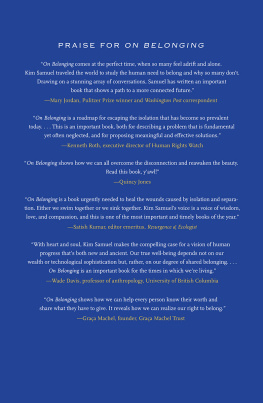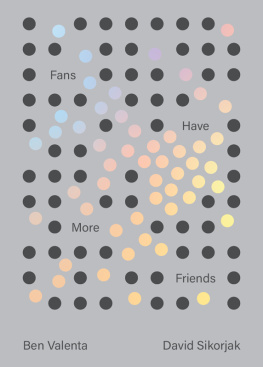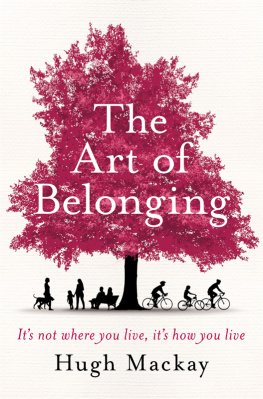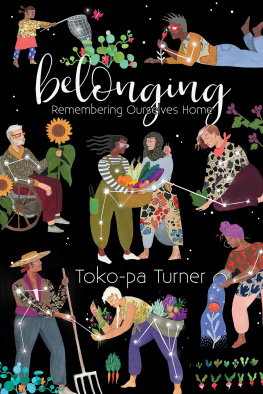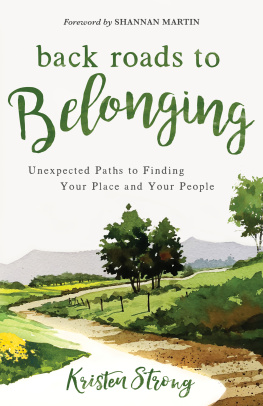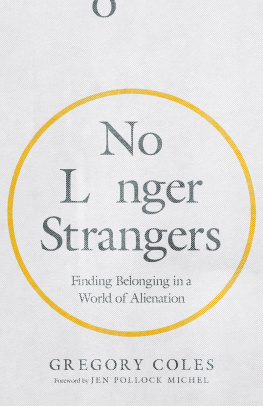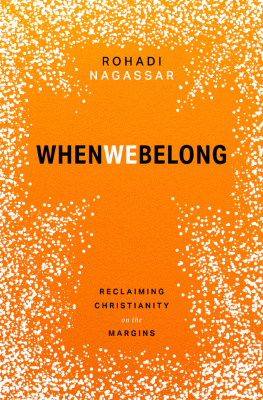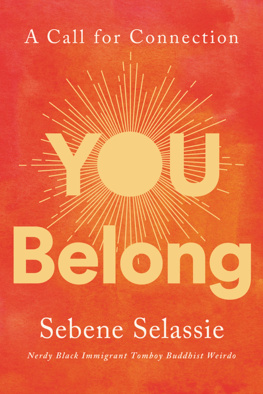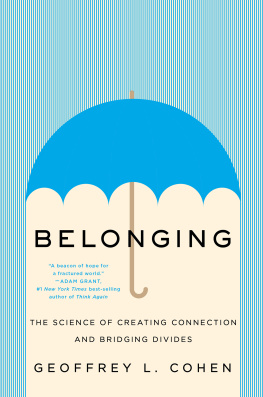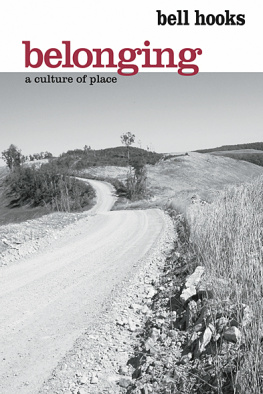Contents
Guide
Page List
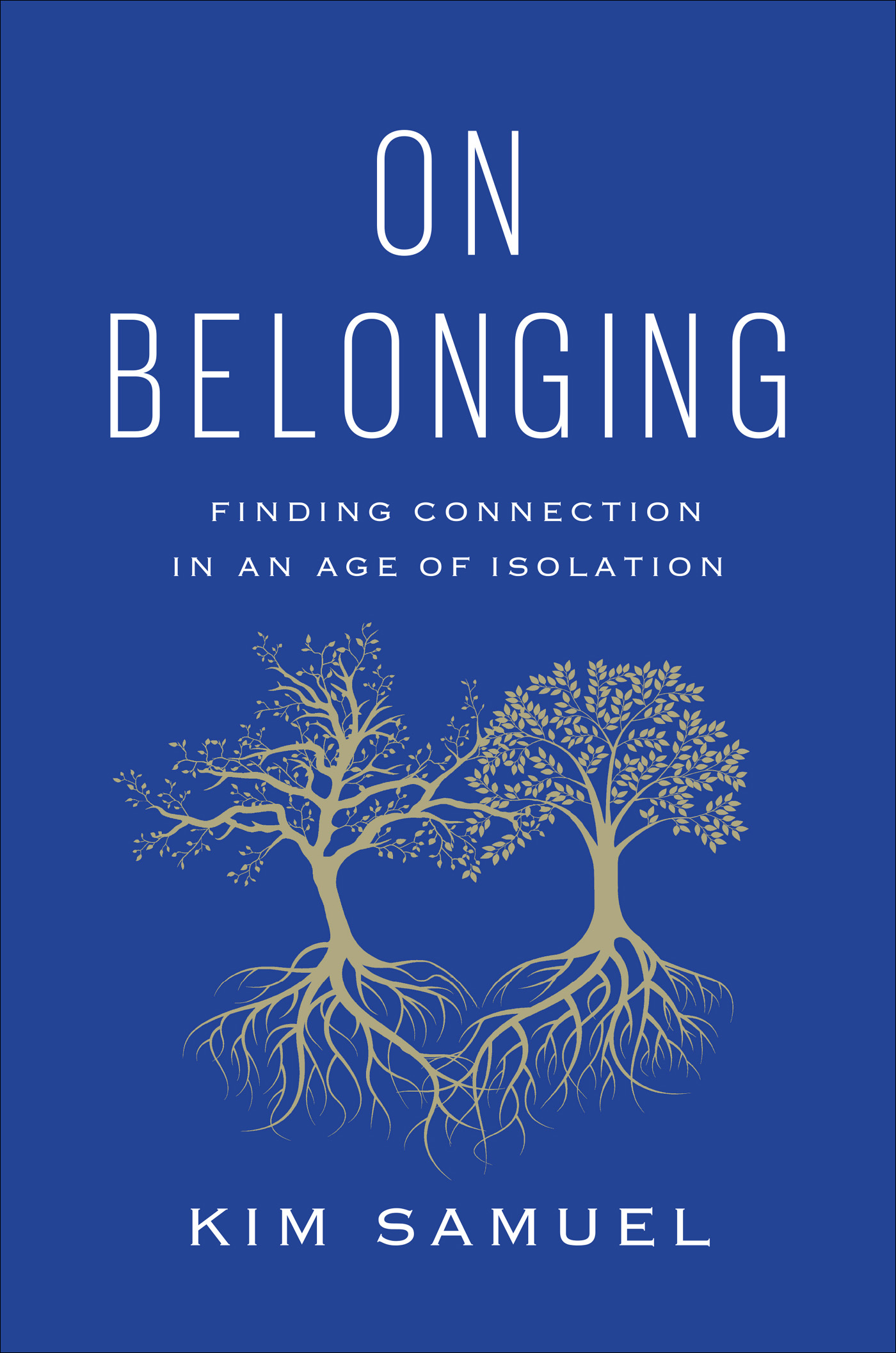


Copyright 2022 Chadburn Ventures, Inc.
Cover 2022 Abrams
Published in 2022 by Abrams Press, an imprint of ABRAMS. All rights reserved. No portion of this book may be reproduced, stored in a retrieval system, or transmitted in any form or by any means, mechanical, electronic, photocopying, recording, or otherwise, without written permission from the publisher.
Library of Congress Control Number: 2022933712
ISBN: 978-1-4197-5303-9
eISBN: 978-1-64700-231-2
Abrams books are available at special discounts when purchased in quantity for premiums and promotions as well as fundraising or educational use. Special editions can also be created to specification. For details, contact specialsales@abramsbooks.com or the address below.
Abrams Press is a registered trademark of Harry N. Abrams, Inc.

ABRAMS The Art of Books
195 Broadway, New York, NY 10007
abramsbooks.com
To Caitlin and Charlotte, my joy
CONTENTS
INTRODUCTION
On a gentle spring evening in May 2002, I was invited to a small dinner in New York City honoring Nelson Mandela and Graa Machel. I had gotten to know Graa personally years earlier and had been moved by her potent presence, her grace, and her sense of the world. Her work in Mozambique, South Africa, and internationally around humanitarian issues had touched thousands of lives, and I was happy and excited to be seeing her again. And I was about to meet Mandela for the first time, a true beacon of hope for our whole human race. As you might imagine, I was overcome by joy and jitters at the same time, in equal measure.
It had been two years since my father, Ernie Samuel, had died from complications related to a brain injury he had sustained five years earlier. He had been one of the shining lights of my life, a man whose kindness and compassion remained constant and unwavering throughout his life. I was thinking how much I wish I could have shared this moment with him.
As Graa introduced me to her husband, she asked, with radiant warmth: How have you been doing since your daddy passed?
I miss him every day, I told her. I spoke about how his journey at the end of his life was one of resilience and tenderness.
Following his injury, my father fell into a three-month coma, then awakened, very slowly. But he was whole as ever. More than anything, he loved his family and his life. He met his physical and social challenges with determination and grace, even as he experienced increased isolation and was treated as if his identity was defined only by his medical condition and his age. The insurance company would not consider paying for rehabilitation because he had reached the age of sixty-fivein their words, he was in his sundown years. Instead, they offered to put him in a nursing home where he would live out his days without hope of regaining his independence.
Caring for my father alongside my family in what turned out to be the final years of his life, I had witnessed the isolation he felt as a result of systemic and relational failures to treat or see him as a whole person. This gave me important insights into the nature of social isolation and connectedness. I began to realize that it wasnt disability that causes isolation. Its the way people perceive disability that leads them to treat people with disabilities differently, often rendering them invisible or not seen for the whole person they are. Same with older people; its not about age, but rather ageism.
Mandela, who had spent almost three decades in prison with long periods in solitary confinement, was watching quietly as I shared these reflections on the isolation my father experienced.
I turned to him and said, Of course, you would know all about isolation.
He paused. No, I have never been isolated.
In that moment, I thought back to when I visited the prison on Robben Island in Table Bay off the Western Cape of South Africa. This was where Mandela spent so many years sequestered, deprived of freedom, and unable to see his children grow. I remember the thunder of the door to his cell as it closed, the tiny window he would have had to lift himself up to just to get a glimpse of the outside world.
Never isolatednot even on Robben Island? I asked.
No, he replied, with quiet conviction. On Robben Island, we were all brothers working together with a common purpose. I was never alone.
He continued, I have seen isolation. I have seen it in the child with AIDS whom no one in the village will love or care for or touch or feed or shelter. I have seen isolationand it is very bad.
This exchange marked me deeply. Here was a man who had been physically isolated in the starkest of conditions, yet more than twenty-seven years of imprisonment, he stayed connected with his community through a shared sense of purpose. Each day, he and his brothers served the cause of his peoples freedom, understanding their personal struggles against repression and racism as a microcosm of their wider struggle. Together, they built a powerful sense of solidarity and belonging that endured the harsh conditions of prison.
Mandela never lost sight of the traditions that gave him a strong sense of his place in the world, the love of his homeland, or the wisdom transmitted to him from his elders. His faith greatly influenced his compassion for all people, including those who oppressed him. He drew from these foundations as he developed a sense of how to emerge from prison undiminished, how to conserve and replenish his beliefs.
In 1941, the philosopher Erich Fromm, a German Jew who fled the Nazis, wrote about the paradox of belonging within conditions of physical isolation: An individual may be alone in the physical sense for many years and yet he may be related to ideas, values, or at least social patterns that give him a feeling of communion and belonging. There are also those, Fromm observes, who live among people and yet are overcome with feelings of isolation. What leads us to these different experiences?
Even from prison, Mandela turned isolation into a sense of belonging within himself and moreover for millions of other South Africans. Although the structures of apartheid cut off most formal routes of belonging for him and many of his countrymen and women in white-ruled South Africawhere those labeled black and colored were told they didnt belong to a place where their ancestors had lived for thousands of yearsMandela fought with conviction to ensure they knew that they did, indeed, belong.
My conversation that night with Mandela and Graa had moved me profoundly. It would continue to change my life in ways I couldnt foresee at the time. That night with the two of them, I felt the affirmation of my journey to understand social isolation and connection in real, concrete ways in the world. This is what I will be doing for the rest of my life, I remember saying to myself.
IVE SPENT MUCH TIME since that night thinking about belonging and its absence, social isolation. Not long after my father awoke from his coma and began his long rehabilitation, I began to imagine social isolation as the feeling of sitting all alone at the bottom of a well, enveloped by damp air and impenetrable walls, unable to escape the darkness. Many people who are socially isolated experience feelings of invisibility and hopelessness, as well as a lack of agency and choice over their situation.

